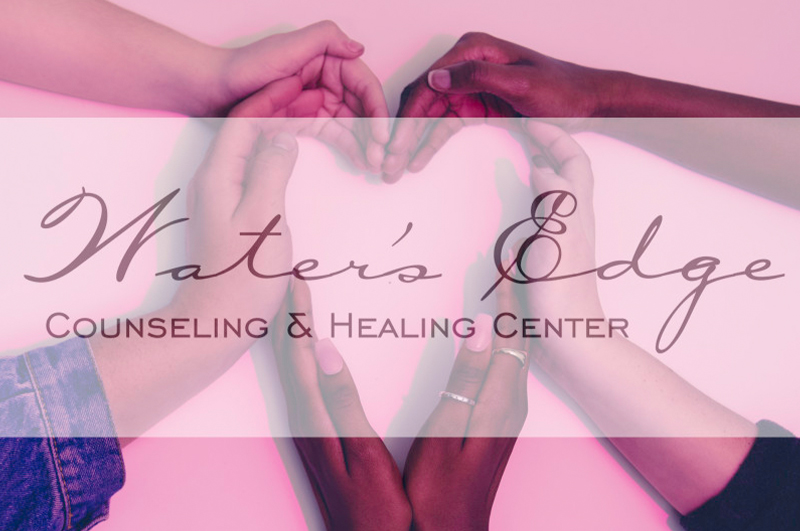**WARNING: Potentially triggering, please read with caution**
Written by Megan Unertl, MA, LPCC
You are a “survivor of suicide,” and as that unwelcome description implies, your survival—your emotional survival—will depend on how you learn to cope with your loss. The bad news: What you are experiencing is horrific, will take time and will surely be a rollercoaster. The good news: The worst is already over.
“Grief, I’ve learned, is really just love. It’s all the love you want to give but cannot. All of that unspent love gathers up in the corners of your eyes, the lump in your throat, and in that hollow part of your chest. Grief is just love with no place to go.” –Jamie Anderson
Truths About Suicide:
Mental illness can (but doesn’t always) increase suicide risk: Oftentimes, suicide is considered a symptom of depression or is associated with depression. According to Your Life Counts, up to 70% of people who die by suicide may suffer from an affective illness such as depression or bipolar disorder. However, it is equally true that intense stress, traumatic events, substance abuse, or serious and chronic pain can lead someone to take their own life.
Anyone can be a victim of suicide: While the American Foundation for Suicide Prevention (AFSP) says that white males in particular are at a higher risk of suicide statistically, people of all genders, ethnicities and age ranges take their own life. Suicide is the 10th leading cause of death in the United States.
Suicide doesn’t peak during the holidays. Contrary to popular belief, the holiday season is not an outstanding cause of suicide, which may be a bit of a comfort as the holidays approach. According to the Center for Disease Control (2015), suicide is actually at its lowest rate in December. Suicide rates actually tend to spike during the Spring and Fall.
So, what makes suicide different from other deaths?
A traumatic aftermath – Death by suicide is sudden and unexpected. It feels unresolved and open-ended, like a sentence without a period. It leads to questions, emotions and intense grief with a complicated healing process, where you have to not only grieve the loss of your loved one but also heal from the trauma.
Wondering “why?” – A suicide survivor may have recurrent thoughts of the death and its circumstances, replaying over and over the loved one’s final moments or their last interaction in an effort to try and understand, or because the thoughts just won’t stop coming. Some suicide survivors develop post-traumatic stress disorder or anxiety and may try to avoid anything that may be a reminder of the suicide.
Understand the stigma and challenge isolation – There’s a powerful stigma attached to mental illness, a significant factor in many suicides. It may feel difficult to acknowledge the suicide due to not wanting that to be how the person is remembered. Mayo Clinic suggests, “Isolation and negative emotions can be catalysts for depression, which can make it very difficult to escape the cycle. Additionally, your other loved ones may be just as affected by the loss as you are. Holding each other up can be considerably more therapeutic than running from the feelings.” Don’t let the shame or stigma keep you from reaching out for help and talking about it.
Feeling confused – There is a bewildering clash of emotions following a suicide. On one hand, the person who dies by suicide may appear the victim of mental illness. On the other hand, the act may seem selfish. You may think, “How could she do that to us?” or “Didn’t he care about me?” There may also be a spiritual conflict of feeling angry at God. “How could God let this happen?” Feelings of anger, rejection and abandonment can be intense and difficult to sort out following a suicide and are very common.
Blaming yourself is normal, but it’s not your fault – When something tragic happens, we want to believe we could have done something to prevent it. “What if” questions can arise after any death. What if I had been around more? What if I had suggested she see her therapist more frequently? What if I hadn’t been away at college? After a suicide, these questions are difficult and likely make us feel worse. They unrealistically create an expectation that the survivor should have been able to intervene. It’s easy to blame the person, blame yourself, or blame the world. While feelings of guilt are totally normal, the choice was ultimately theirs, so try not to be so hard on yourself.
All of these reactions are common and to be expected. It’s important to remember that you may experience an abundance of emotions while coping with the grief. Knowing, expressing and validating your emotion may help ease the process.
“There will be pain which may seem insurmountable. Allow yourself to accept help and live life. Remember there is someone somewhere who has answers when you are ready. You may need a friend or family member to take the first step for you to begin healing. Sometimes you simply may not be capable of seeking help on your own. It’s perfectly respectable to receive and utilize the help you need.
Alternately, so is being capable and strong. It doesn’t mean you cared less or aren’t grieving enough because you are capable of strength in adversity. The reality of grieving is that your grief won’t be like anyone else. Grief is as individual as the person grieving.” – Carol Deason, Suicide Survivor
It’s never too early to start healing.
Stay connected with family and friends: Certainly take time for yourself to grieve, however try to maintain contact with those who are there to support you.
Support groups: There are many support groups available, both online and in-person. Here are a few resources to get you started.
- The American Association of Suicidology (202) 237-2280
- The American Foundation for Suicide Prevention (888) 333-AFSP (2377)
- Compassionate Friends (877) 969-0010
- SPAN USA — Suicide Prevention Action Network (888) 649-1366
Refrain from making any major life decisions in the first year: When we can’t change something that hurts, we often try to take control in other areas of life. Moving, changing or quitting a job, starting or ending a relationship are all big decisions and should be avoided while you grieve. Accept that your judgement may not be 100% and try to hold off for a while. If you have to make a decision, consult with somebody you trust and get input before making the commitment.
Know that it’s okay to move forward: Life has a way of continuing to move forward, even if we don’t feel ready. It may start to feel like you are leaving your loved one behind as you have new experiences or life events. It’s okay to feel sad that they can’t be there to share them with you, but try not to let that keep you from living and celebrating life. Even though the person is not physically with you, you always have the memory of who they were.
Consider professional help: Get connected with a therapist. Even if you feel you are adjusting well or have other people for support, therapy can be a great place to talk and process through all of the emotions that arise from losing someone to suicide. In addition, a therapist can help you monitor signs of anxiety, depression or post-traumatic stress disorder that can arise and provide additional support and resources as needed.
Additional resources for survivors of suicide:
Mayo Clinic
National Suicide Prevention Lifeline or 1-800-273-8255
Survivors of Suicide
Lifeline Online Crisis Chat
References:
- Centers for Disease Control and Prevention (CDC) (2015). Suicide: Facts at a glance [Online].
Deason, C. (2017). Coping with the loss of my son after suicide. - Harvard Women’s Health Watch (2015). Suicide survivors face grief, questions, challenges.
- Jackson, J. (2003). A handbook for survivors of suicide. American Association of Suicidology.
** Blog was updated on 4/9/2018 to remove “suicide survivor” from above quote by Jamie Anderson. We were notified that this was inaccurate and made the corrective change.






